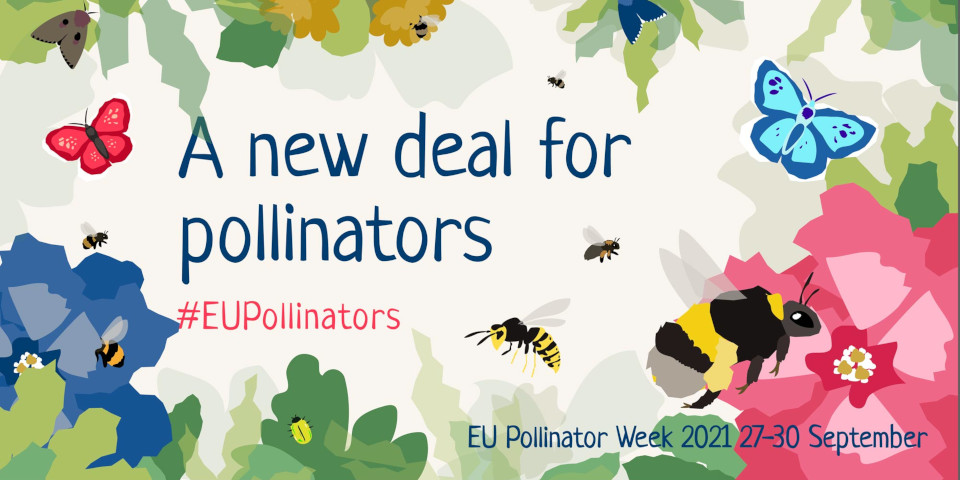The EU Pollinator Week is an event bringing together experts, policymakers, and stakeholders. This year’s theme is “A New Deal for Pollinators”, emphasising the current status and future opportunities to secure the fundamental role of pollinators.
The event will be held online, and registration is now open. Browse the schedule and register for the sessions of your choice at https://www.pollinatorweek.eu/agenda
Additional Information about the EU Pollinator Week:
The EU Pollinator Week is organised by Members of the European Parliament under the chairmanship of Martin Hojsík and BeeLife European Beekeeping Coordination, in partnership with the European Commission, the Slovenian Presidency of the Council of the EU, and the European Food Safety Authority (EFSA).
From 2012, the European Bee and Pollination Week, informally named “Bee Week”, was held annually in the European Parliament in Brussels. In 2021, the event was renamed “EU Pollinator Week” to achieve a more inclusive framework of cooperation that focuses on all types of pollinators.
The EU Pollinator Week brings together all relevant stakeholders: public authorities, non-governmental organisations, scientists, beekeepers, farmers, businesses, and citizens. Together, they discuss ideas and exchange proposals to promote public policies and stakeholder actions that protect healthy populations of wild and managed pollinators and the invaluable benefits they provide to society.
Join us to discuss how EU actions for pollinators should be stepped up at the turning point for the European policy. It is now a crucial time since EU institutions and member states are reframing the European environmental landscape with the European Green Deal, its flagship Biodiversity and Farm to Fork strategies. Besides, they are reforming the EU Common Agricultural Policy and the ongoing revision of the EU Pollinators Initiative. The event will also seek high political support for an ambitious “New Deal for Pollinators”, which will stop the decline of pollinators by 2030.







